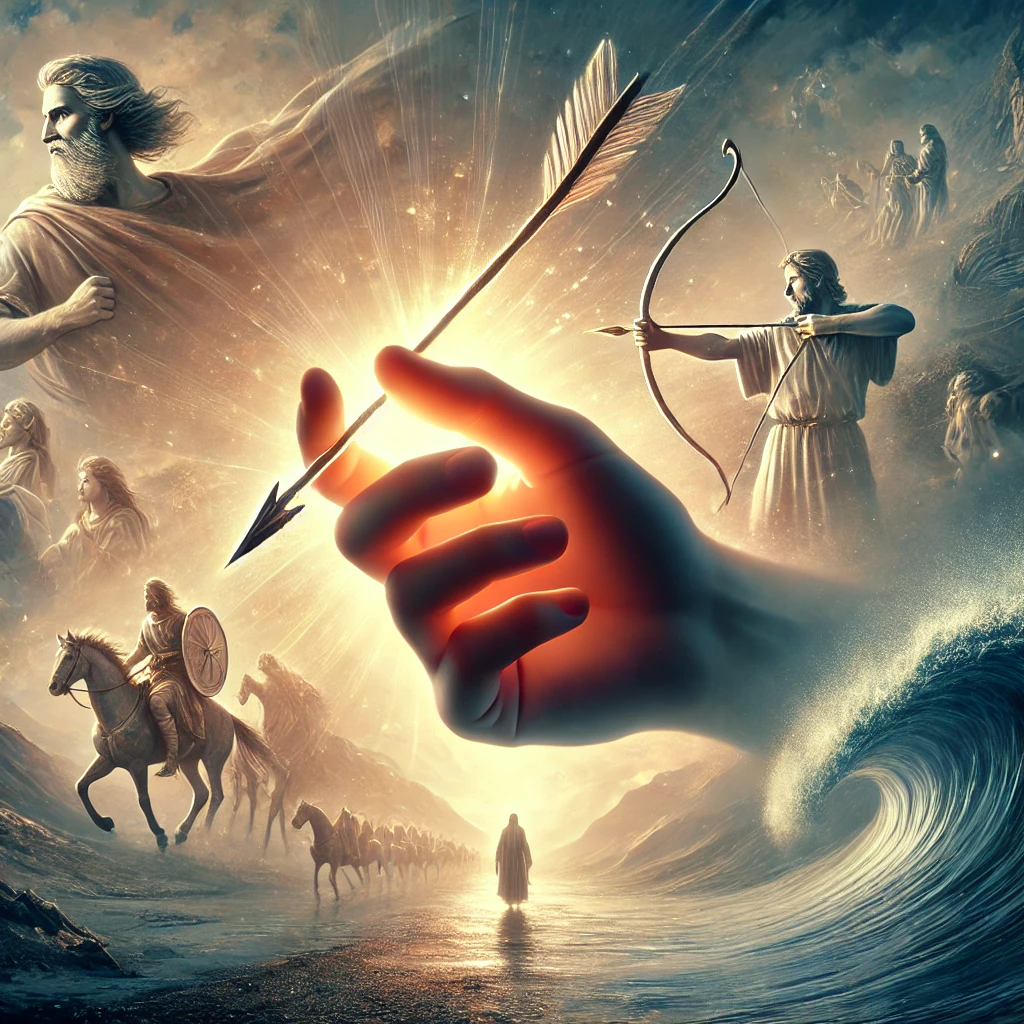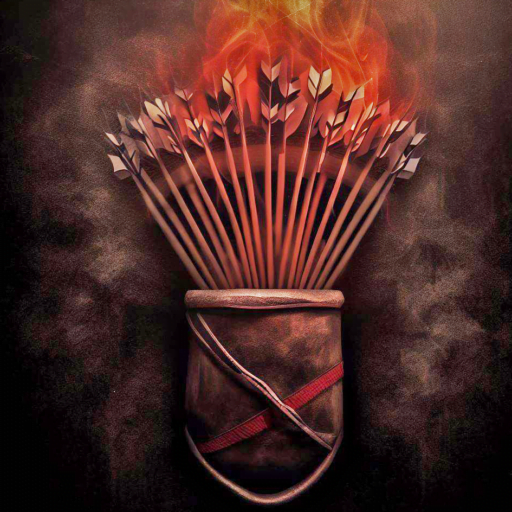
God holding our right hand and leading us is the desire of all believers. But when He holds our hand, do we realize it? Do we understand the possibilities that can happen when He is holding our hand?
Moses held the staff that God told him to take. Therefore, when facing the Red Sea, it wasn’t God’s duty to raise the hand but Moses’ responsibility. That’s why God says: “Why are you crying out to me? Raise your staff and stretch out your hand” (Exodus 14:15-16). It’s always the question God asks: “What is in your hand?” when we come to Him with our problems. Though He can do everything with nothing, He wants us to be part of something big, and He takes our hand to do great things.
Jesus could have fed the five thousand with nothing, but He chose to begin with five loaves and two fish. He could have paid the debts of the widow, but He asked for the little oil she had left in her house. Even today, though God can accomplish anything by Himself, He still desires for us to be part of His work.
Now Elisha was suffering from from the illness from which he died. Jehoash king of Israel went down to see him and wept over him. “My father! My father!” he cried. “The chariots and horsemen of Israel!” 2 kings 13:14
King Jehoash was the grandson of King Jehu, who had killed Ahab and Jezebel. God had promised Jehu that four generations of his descendants would rule Israel. Even though these kings did evil in the sight of God, He upheld His promise. Here, we see King Jehoash coming to Elisha on his deathbed. Notice the words he speaks—don’t they seem odd? Who says something like that to a person on their deathbed, calling him the horsemen and chariots of Israel?
This phrase is significant because they are the exact words Elisha spoke when Elijah was taken up to heaven. Elisha had desired a double portion of Elijah’s anointing, and Elijah had told him that if he saw him being taken up, his request would be granted. Elisha witnessed the chariots and horses of fire taking Elijah up in a whirlwind.
At that time, Elisha cried out to Elijah, “My father! My father! The chariots and horsemen of Israel!” (2 Kings 2:12). Perhaps he called out to remind Elijah of the condition for receiving the double portion of his spirit. Elisha deeply desired that anointing, so he cried out and received it.
Now, King Jehoash comes to Elisha’s deathbed and uses the same words. In a way, he’s saying, “Elisha, your time has come, but I need something from you, just like you received from Elijah. I want to have something, too.” By repeating those words, the king reminds Elisha of what he once said to Elijah.
Nothing had been left of the army of Jehoahaz except fifty horsemen, ten chariots and ten thousand foot soldiers, for the king of Aram had destroyed the rest and made them like the dust at the threshing time. 2 Kings 13:7
At this time, Israel was militarily weak. Jehoash’s father, King Jehoahaz, had only ten chariots, so one can imagine how Jehoash would fight a war with such limited resources. Meanwhile, Aram posed a great threat to Israel. Jehoash was under Elisha’s protection; whenever the enemy king planned to attack, Elisha would warn the king of Israel. But now, with Elisha on his deathbed, Jehoash feared he would lose that protection. He couldn’t rely on his ten chariots, so he called upon the true chariot and horsemen of Israel—Elisha.
Elisha said, “Get a bow and some arrows,” and he did so, “Take the bow in your hands,” he said to the king of Israel. When he had taken it, Elisha put his hands on the Kings’s hands. 2 Kings 13:15
Here, Elisha instructs the king to strike with the arrow, while holding the king’s hands. Jehoash struck the ground three times and stopped. Elisha became angry and revealed that had the king struck the ground five or six times, he would have completely defeated his enemies. But because he struck only three times, he would only gain victory three times.
The king stopped striking, perhaps because he didn’t understand why he was striking or what it symbolized. He didn’t realize whose hands were upon his. Today, God is holding our hand and asking us to strike in faith. He’s telling us to fight. Yet after facing obstacles and troubles, we often give up. We stop fighting and begin asking questions: “How long do I have to endure this? When will I be relieved?” We fail to realize whose hands are guiding us.
When we stop fighting, God asks the same questions: “Why are you stopping? Why are you feeling tired? Why are you questioning? Haven’t I given you victory all this time?”
Peter was ready to walk on water, but in the middle of his journey, when he saw the waves and the storm, he stopped and began to sink. Jesus asked him the same question: “Why did you doubt?” We may have walked on water or experienced victory in certain moments, but at times, we stop and start doubting.
Remember how Elisha received his anointing. He pursued Elijah relentlessly, even when others—prophets or people—discouraged him from doing so. Even Elijah himself told him to stop following. But Elisha persisted. Only then did Elijah tell him that if he saw him taken up to heaven, he would receive the double portion of anointing. Elisha might have had many questions: Why was he following Elijah? What good would come of it? But despite those questions, he pressed on.
In contrast, King Jehoash, though he tried to imitate Elisha by speaking the same words and seeking something from Elisha on his deathbed, couldn’t replicate Elisha’s thirst. He stopped short of fulfilling what he was instructed to do.
Heaven has given you a task. If you stop, the same questions will be asked: “Why did you stop? Hasn’t God helped you all along? Wasn’t His hand upon you?”
This king was not particularly righteous; he was not as holy as others might think. But he had promises—promises that God had made to his grandfather, that his dynasty would last for four generations. Now, he had another promise from God: that he would defeat Aram three times.
When the King of Judah challenged him, Jehoash responded with great confidence because he knew that God had given him certain promises and that His hand was upon him. Even though the King of Judah was righteous and obedient to God’s commands (not wholeheartedly), he still lost the battle to the King of Israel because Jehoash had God’s promises on his side.
Today, we need to understand that if we stop, we leave our enemies undefeated. To overcome them completely, we cannot give up. Instead, we must rely on God’s hand, which is upon us. No matter if we lack strength, resources, or the number of horses and chariots, victory will be ours if we rely on God. When we trust in God, we will be kept in the QUIVER OF GOD.



May God bless you all..